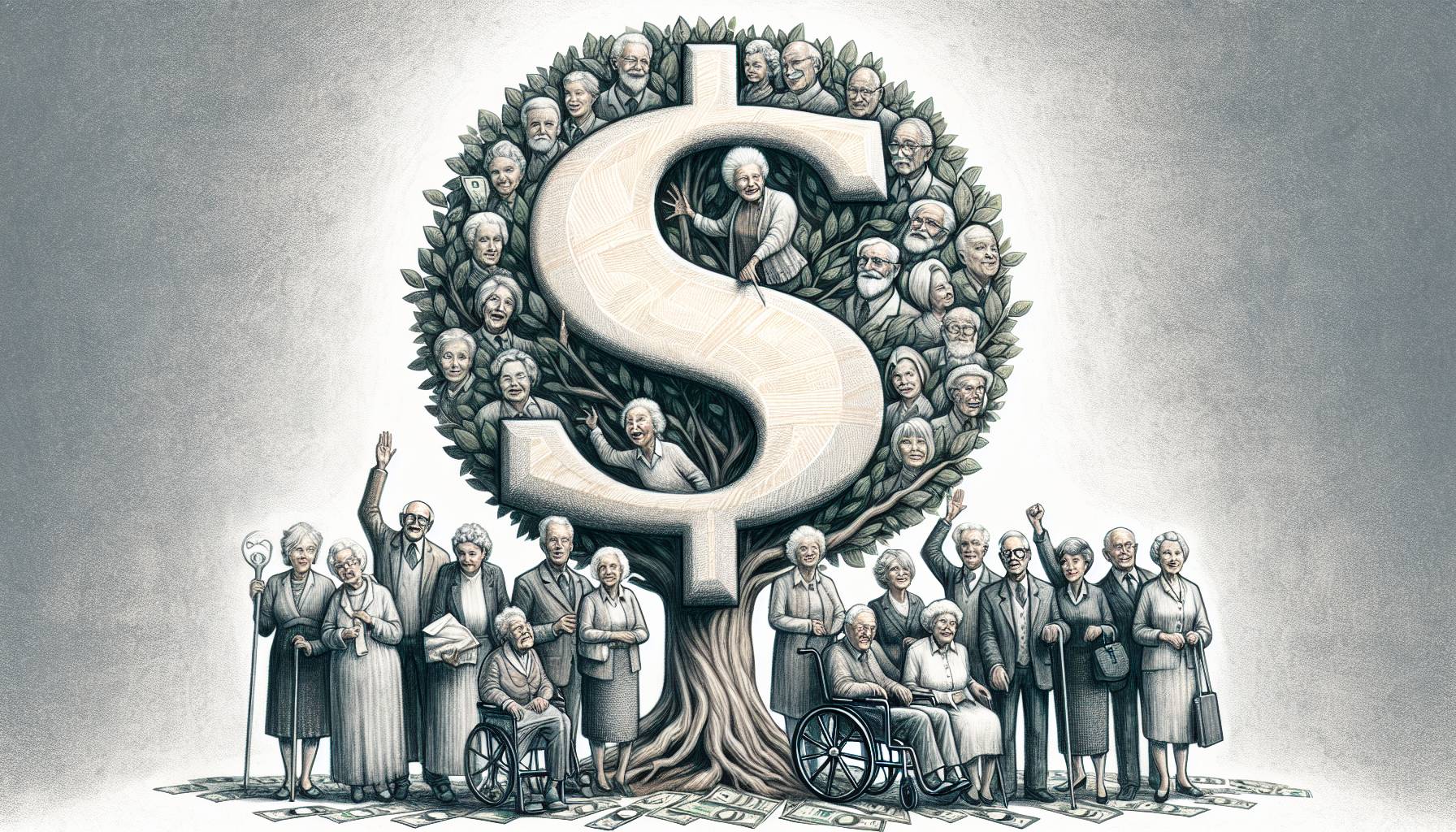As the deadline for the budget draws nearer, there is increasing worry about the possible consequences of a government shutdown on vital health programs, including President Biden’s Medicare drug pricing plan. Health and Human Services Secretary Xavier Becerra has warned that a shutdown might adversely affect the work of negotiation staff who collect data and coordinate with manufacturers. However, the Inflation Reduction Act has already allocated $3 billion to the negotiation program, which should, in theory, protect it from a shutdown.
Nonetheless, concerns persist regarding the potential impact of a government shutdown on health programs, given the unprecedented challenges facing the healthcare system amidst the ongoing pandemic. It is crucial for lawmakers to reach a consensus and pass the budget in a timely manner to ensure the continuity and effectiveness of these programs in providing essential healthcare services to millions of Americans.
Unclear Impact on Medicare Negotiation Team
The specific impact of a government shutdown on the new Medicare negotiation team remains unclear. It is expected that “core” CMS personnel would continue to work, while support and career staff could face temporary leaves of absence. This is a common situation during budget shutdowns, but it is important to remember that the Inflation Reduction Act has already provided funding for the negotiation office.
As a result, the negotiation team may not be as severely affected as other departments facing furloughs during the shutdown. However, the absence of support and career staff could potentially slow down the progress and efficiency of the negotiation team, impacting their ability to fulfill their mission in a timely manner.
Effects of a Government Shutdown on Public Services
If a shutdown occurs and an agreement is not reached by October 1, approximately 40% of staff across government programs may be temporarily laid off. The repercussions on different agencies will be diverse, with exceptions made for activities related to pandemics, emergency response, and tasks crucial for human safety.
As a result, numerous public services could experience disruptions or delays, ultimately affecting millions of people who rely on these functions in their daily lives. It is essential that lawmakers come together to find a swift resolution, as the longer the shutdown lingers, the greater the negative consequences for communities across the nation.
Senator Bob Menendez’s Uncertain Political Future
The political future of New Jersey Senator Bob Menendez, one of the few Democratic supporters of the pharmaceutical industry, is uncertain due to accusations of receiving illegal funds to influence military aid. Menendez previously faced a hung jury for an indictment concerning Medicare payments, and his current case is still pending.
These allegations have the potential to significantly impact Menendez’s political career and the Democratic Party’s relationship with the pharmaceutical industry. As the case unfolds, observers will be closely watching how it shapes public opinion and future policy decisions.
Implications for Drug Pricing Negotiations and HIV/AIDS Program
If Menendez leaves Washington, it may have repercussions for drug pricing negotiations as well as his position as a Senate Democrat on the international HIV/AIDS program. The potential departure of Menendez could leave a vacuum in his influential role, making it difficult for drug pricing reforms to progress at the desired pace.
Additionally, a change in leadership within the international HIV/AIDS program could cause some temporary disruptions, as the new representative would need some time to adjust and adapt to the ongoing strategies and methodologies.
Plant-Based Milk Substitutes Naming Dispute
Finally, the ongoing dispute over the naming of plant-based milk substitutes is provoking controversy in the food industry. Dairy proponents are pressing regulators to stop companies like Silk and Oatly from labeling their products as “milk.” This battle stems from the belief that the term “milk” should be reserved exclusively for products derived from animals, whereas plant-based alternatives needing their own distinct classification.
As a result, this disagreement has led to tension between traditional dairy farmers and those advocating for increasingly popular plant-based alternatives.
FDA’s Draft Policy and Dairy Supporters’ Efforts
However, the FDA’s draft policy allows plant-based alternatives to use the term “milk,” which has limited the options for dairy supporters. Despite this setback, dairy supporters continue to argue that the usage of the term “milk” for plant-based alternatives can cause consumer confusion and mislead them into believing that these products offer the same nutritional benefits as dairy milk.
They believe that regulatory changes are needed to help clarify the distinction between traditional dairy products and their plant-based counterparts.
Congressional Intervention and Implications
Their last resort is to ask Congress to overturn the FDA’s decision. If Congress chooses to intervene, it could potentially pave the way for reconsiderations of the FDA’s decision-making process. This unprecedented move could also impact future rulings in the regulatory landscape of the pharmaceutical industry.
FAQs: Concerns Over Government Shutdown and Healthcare Programs
What is the potential impact of a government shutdown on healthcare programs?
A government shutdown can lead to temporary layoffs for non-essential staff working on health programs. This may result in delays in the progress and efficiency of certain healthcare initiatives, including Medicare drug pricing negotiations. During the ongoing pandemic, any disruption to critical healthcare services could have significant consequences for millions of Americans relying on these programs.
How might a government shutdown affect the Medicare negotiation team?
Although the Inflation Reduction Act has already provided funding for the negotiation office, a government shutdown could potentially lead to temporary leaves of absence for support and career staff. This may slow down the progress and efficiency of the negotiation team, impacting their ability to fulfill their mission in a timely manner.
What are the possible consequences of a shutdown on public services?
If a shutdown occurs, approximately 40% of staff across government programs may be temporarily laid off, leading to disruptions or delays in many public services. Exceptions are made for activities related to pandemics, emergency response, and tasks crucial for human safety. It is essential that lawmakers come together to find a swift resolution, as the longer the shutdown lingers, the greater the negative consequences for communities across the nation.
What is the current situation with Senator Bob Menendez and how might it impact drug pricing negotiations and the HIV/AIDS program?
New Jersey Senator Bob Menendez is facing accusations of receiving illegal funds to influence military aid. If Menendez leaves Washington, it may have repercussions for drug pricing negotiations and his position as a Senate Democrat on the international HIV/AIDS program. The potential departure of Menendez could negatively impact drug pricing reforms and cause temporary disruptions in the HIV/AIDS program.
What is the controversy surrounding the naming of plant-based milk substitutes?
There is an ongoing dispute over whether plant-based milk substitutes should be allowed to use the term “milk.” Dairy proponents argue that “milk” should be reserved exclusively for products derived from animals, while plant-based alternatives should have their own distinct classification. This disagreement has led to tension between traditional dairy farmers and those advocating for plant-based alternatives.
What is the FDA’s stance on the plant-based milk substitute naming dispute, and what are the implications if Congress intervenes?
The FDA’s draft policy allows plant-based alternatives to use the term “milk.” Dairy supporters continue to argue that this can cause consumer confusion and seek regulatory changes. If Congress chooses to intervene and overturn the FDA’s decision, it could potentially impact the agency’s decision-making process, with broader implications for future rulings in the pharmaceutical industry’s regulatory landscape.
First Reported on: statnews.com
Featured Image Credit: Photo by Anna Shvets; Pexels; Thank you!













